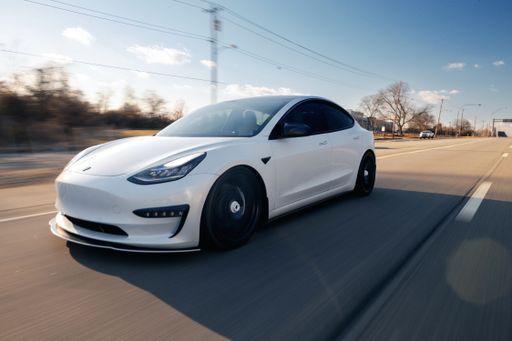More EVs lose US tax credits including Tesla, Nissan, GM vehicles
Many electric vehicles lost eligibility for tax credits of up to $7,500 after new battery sourcing rules took effect on Monday.

New Battery Sourcing Rules Impact Tax Credits for EVs
The U.S. Treasury has announced that several electric vehicle models, including the Nissan Leaf, Tesla Cybertruck All-Wheel Drive, some Tesla Model 3s, and Chevrolet Blazer EV, have lost eligibility for tax credits up to $7,500. This change is a result of new battery sourcing rules which aim to reduce reliance on China in the electric vehicle supply chain.
The Treasury issued guidelines in December outlining these new requirements, and they went into effect on Monday. As a result, the number of EV models qualifying for U.S. tax credits dropped from 43 to 19. However, this number may still change as some manufacturers have yet to submit information on eligible vehicles.
Tesla, in particular, has stated that the Cybertruck is expected to qualify for the federal tax credit later in 2024. The new rules allow buyers to claim tax credits at the point of sale, with restrictions based on vehicle price and buyer income.
Vehicles Excluded from Tax Credits
Among the electric vehicles that are no longer eligible for tax credits are the Volkswagen ID.4, Tesla Model 3 Rear Wheel Drive, BMW X5 xDrive50e, Audi Q5 PHEV 55, Cadillac Lyriq, and Ford E-Transit. However, some automakers are still working to confirm eligibility under the new rules for their vehicles.
Volkswagen has expressed optimism that their MY2023 ID.4s and MY2024 ID.4s will ultimately be eligible for the tax credit. BMW and Nissan are also making efforts to meet the changing requirements and regain tax credit eligibility for their vehicles in the future.
It's worth noting that Ford's E-Transit, Mach-E, and Lincoln Aviator Grand Touring plug-in hybrid are losing tax credits, but their F-150 EV Lighting and Lincoln Corsair Grand Touring still qualify. General Motors has stated that all of their EVs, except the Chevrolet Bolt, will temporarily lose eligibility, but they expect to regain it after a sourcing change.
EV Tax Credit Reforms and Implications
The EV tax credit changes stem from the 2022 Inflation Reduction Act, which requires vehicle assembly in North America to qualify for any tax credits. This reform has significantly reduced the number of eligible models, eliminating nearly 70% of them. Tesla had previously disclosed that some of their Model 3 vehicles would lose federal tax credits starting January 1, 2024, although the Model 3 Performance variant retains the credit.
Despite the changes, automakers are actively adjusting their supply chains to ensure ongoing eligibility for tax credits. They are partnering with allies and investing in the United States to support the clean vehicle credit and promote domestic manufacturing and job creation in the electric vehicle industry.
It's important to stay updated on these changes, as they have significant implications for electric vehicle buyers and manufacturers. The U.S. government continues to seek ways to incentivize the adoption of electric vehicles while promoting a more sustainable and resilient supply chain.

